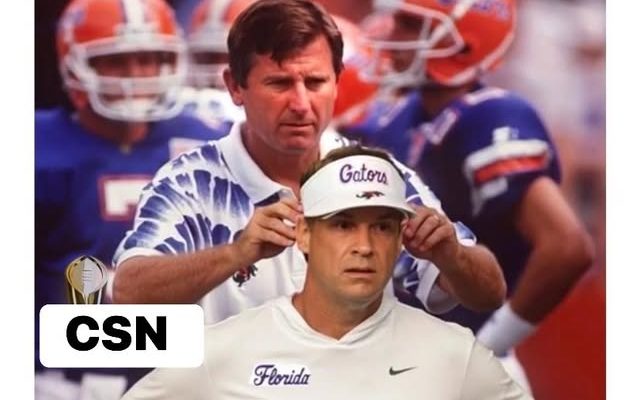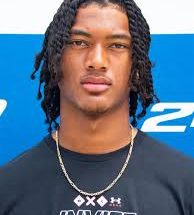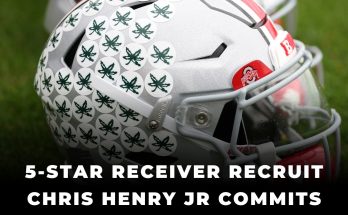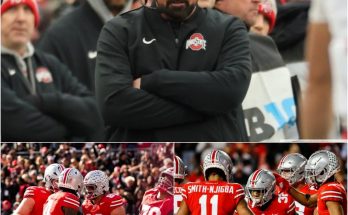The question hangs in the humid Florida air, a tantalizing hypothetical that has ignited message boards and sports radio lines from Pensacola to Key West: should the University of Florida make a move for Lane Kiffin? On the surface, the proposition seems almost too perfect, a ready-made narrative filled with drama, offensive fireworks, and the kind of swagger that once defined Gator football. He is, by any measure, one of the most intriguing and polarizing figures in the sport, a coaching savant whose personal journey is as compelling as his playbook. But the leap from intriguing to ideal is a vast one, and for a program mired in a decade-and-a-half of identity crisis, the decision of its next head coach is nothing less than existential. The case for and against Lane Kiffin is not merely a debate about wins and losses; it is a philosophical referendum on what Florida football should be in the modern era.
The argument for Kiffin is powerful, seductive even, and it begins with the one undeniable constant of his career: offensive genius. Wherever he has gone, from the heights of USC as a coordinator to the revitalization of Tennessee, Alabama, FAU, and now Ole Miss, points have followed in torrents. His offensive system is a modern, up-tempo, quarterback-friendly scheme that thrives on creating mismatches and exploiting space. It is precisely the kind of football that wins in today’s SEC and, just as importantly, the kind that electrifies recruits. For a Florida program that has often looked offensively anemic, stuck in a bygone era of plodding ground games and unimaginative passing attacks, the allure of Kiffin’s points-per-game guarantee is undeniable. He would immediately install an offense that is both potent and entertaining, a crucial factor for a fanbase whose patience has worn thin and for a recruiting trail where the Gators have consistently lost blue-chip quarterbacks to rivals.
Furthermore, Kiffin possesses the specific, hard-earned experience of navigating the brutal landscape of the Southeastern Conference. He understands the week-in, week-out grind, the unique pressures of the SEC Media Days circus, and the specific recruiting battles that define the league. His work at Ole Miss is a masterclass in program building, taking a team with inherent limitations and, through elite player evaluation and transfer portal wizardry, molding it into a consistent threat to the conference’s established hierarchy. He has beaten Nick Saban, he has gone toe-to-toe with Kirby Smart, and he has done so without the bottomless reservoir of five-star talent that those programs possess. This is not a coach from the Big 12 or the ACC who would require an adjustment period; Kiffin is already battle-tested in the very arena where Florida’s fate will be decided.
Then there is the swagger. The “Lane Train” persona is a curated brand of confidence, provocation, and social media savvy that, for all its occasional cringe, generates immense energy. In an era where recruiting is as much about branding and personality as it is about scheme, Kiffin is a master marketer. He would instantly make Florida cool again for a generation of recruits who live and breathe the online discourse he so expertly navigates. This bravado is a double-edged sword, of course, but it is also a stark contrast to the often-stoic, corporate demeanor that has characterized recent Florida leadership. The Gators have historically thrived with a certain edge, from Steve Spurrier’s visor-tossing swagger to Urban Meyer’s relentless intensity. Kiffin, in his own unique way, embodies that same rebellious, confident spirit that once made Florida a feared and fascinating program.
However, to only consider these assets is to ignore the other, more complicated side of the ledger. The very swagger that makes him compelling also carries significant baggage. His history is checkered with abrupt departures and professional bridges burned—from his messy exit from Tennessee after a single season to his mid-season firing at USC. The question for Florida Athletic Director Scott Stricklin would be a simple one: are you hiring the mature, seasoned Lane Kiffin of 2024, or are you getting the impulsive, opportunistic version of 2009? The Gators cannot afford another failed experiment; the program needs stability and long-term vision above all else. Kiffin’s past suggests a mercenary mentality, a coach always looking for the next best thing. Would Gainesville be a destination or merely another stop? In the high-stakes world of college football, trust is a currency as valuable as a five-star recruit, and Kiffin’s reserves have been historically low.
Beyond the loyalty question lies the issue of fit. Florida is not just any job; it is a program with a specific, often demanding, culture and a powerful, entrenched fanbase and booster network. Kiffin’s act, which plays wonderfully in the slightly more forgiving environment of Oxford, would be under a microscope in Gainesville. Every cryptic tweet, every brash comment, would be dissected and amplified in the state’s relentless media market. Would his personality clash with the “Gator Standard” old guard? Could he navigate the political minefield that comes with one of the nation’s most visible jobs? The history of brilliant offensive minds failing at major programs due to an inability to manage the entire ecosystem is long and cautionary. Coaching at Florida is as much about being CEO as it is about calling plays, and this has not always been Kiffin’s demonstrated strength.
Finally, there is the defensive question. While Kiffin’s offenses are consistently elite, his teams have often been defined by their defensive shortcomings. At Ole Miss, despite their offensive prowess, they have frequently been unable to get critical stops against the nation’s best, dooming them in their biggest games. To win championships in the SEC, a team must, at a bare minimum, be competent and physical on defense. Florida’s identity during its golden eras was built on speed and ferocity on that side of the ball. Could Kiffin, an offensive specialist through and through, hire and empower a defensive coordinator to build a unit capable of slowing down Georgia, Alabama, and LSU? His track record suggests this is a significant gamble.
So, should Florida make the move? The answer is as complex as the man himself. Lane Kiffin represents the highest of high-risk, high-reward propositions. He offers a near-certain guarantee of a revitalized, explosive offense, SEC credibility, and a recruiting jolt that would instantly make Florida must-see TV. He is the antidote to the program’s recent offensive malaise and a figure capable of restoring the program’s signature swagger. But he also carries the specter of instability, a history of abrupt departures, and legitimate questions about his ability to build a complete, championship-caliber team and manage the immense pressures of the Florida job. The decision ultimately comes down to what the Florida administration believes the program needs most: a brilliant offensive mind to win the headlines and the Heisman Trophies, or a steady, holistic CEO to win the championships. In Lane Kiffin, they would undoubtedly get the former. The multi-million-dollar question is whether they could afford the potential cost of not getting the latter.



